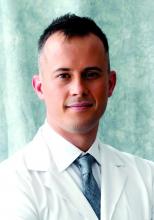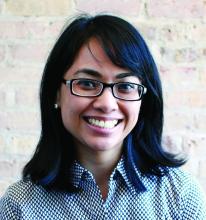To fight burnout, Griffin Myers, MD, wants more out of the physicians who work at Chicago-based Oak Street Health.
Not more time, or more patients, or more codes billed – but more passion and a more meaningful professional experience, said Dr. Myers, cofounder and chief medical officer of the 42-practice group that cares for Medicare patients.
Oak Street seems to be on to something. According to the health care consultancy The Advisory Board, there are three key ways to avoid physician burnout: involve physicians in strategic decision making, recognize physicians’ contributions, and create time-limited leadership opportunities for physicians.
“What do you want to be when you grow up?”
That’s the question Dr. Myers asks physicians during job interviews. He wants to discover their personal and professional passions.
Health care leaders can’t expect physicians to prevent burnout on their own, insists Dr. Myers. “You have to change the way your organization supports clinicians.”
At Oak Street, that includes supporting physicians with medical scribes and ensuring that they aren’t bogged down with paperwork or “fighting with the fax machines,” said Dr. Myers.
Once a physician is hired at Oak Street, they’re partnered with a medical director who uses the practice’s resources to support the physician’s clinical and professional passions. Specifically, that means providing physicians with administrative time (nonpatient time) and support – both organizationally and financially – for professional development. Medical directors meet with physicians quarterly to check in and assess performance.
Take, for example, Tina Valdez, DO, an internist at Oak Street’s Englewood, Ill., location, who previously practiced at Advocate Lutheran General Hospital in Park Ridge, Ill. During the job interview process, Dr. Myers discovered that Dr. Valdez wanted to keep teaching and mentoring residents as they transitioned to attending physicians.
Dr. Myers was on board, so Dr. Valdez uses her administrative time to meet with early-career physicians on a quarterly basis.
Resident physicians are used to having a more senior physician monitor their work, Dr. Valdez noted. Without that oversight, many first-year physicians can get anxious. To support them, she leads small group discussions on topics including patient cases and ways to better work with other members of the care team, such as relying on a medical assistant to capture vital signs and conduct a thorough medication reconciliation.



